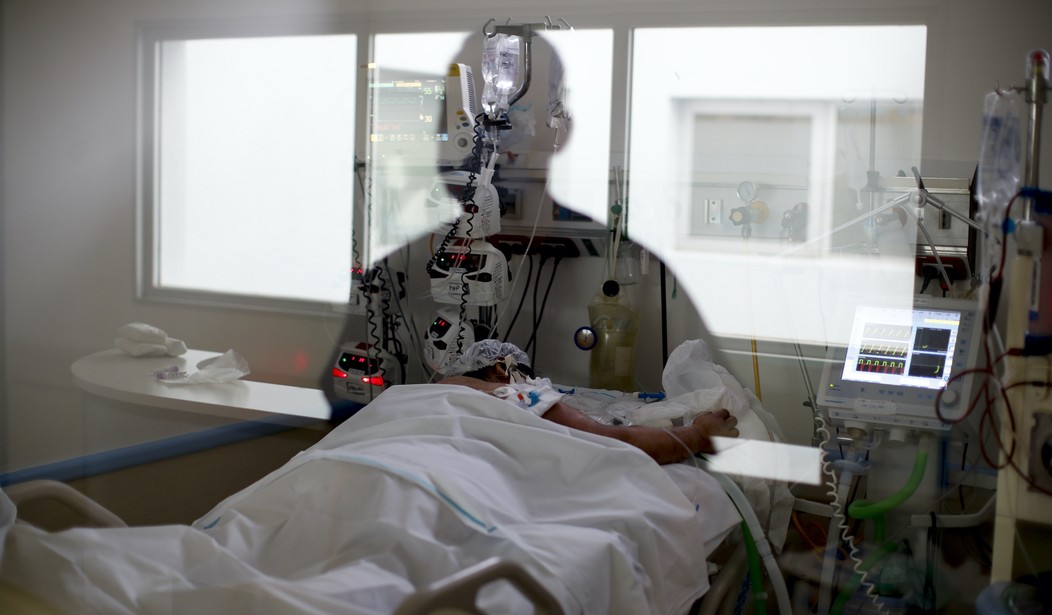As Congress barrels towards passage of a $1.2 trillion infrastructure bill, the nation’s top legislative body is inevitably trying to find ways to cover the costs of this massive new government program. Against all logic -- and the law -- some legislators have proposed rescinding emergency funds earmarked to help hospitals combat COVID and to instead repurpose them as a “pay for” as part of this legislation. Not only is this violating the spirit of the law, but it is dangerous.
Among the many provisions of the Coronavirus Aid, Relief and Economic Security Act (CARES Act), a stimulus bill designed to help American get through the public health crisis and signed into law by the President Trump, was the Provider Relief Fund (PRF). The Fund provided a $178 billion lifeline for the hospitals and healthcare providers who have been tirelessly working to save the lives of millions of Americans and have been fighting to keep the lights on and doors open in a time when Americans need healthcare the most.
COVID-19 hurt every industry, but doctors, nurses, and other medical professionals were hit the hardest; dealing with a deadly increase in demand, decrease in supplies, and an economic crunch as lockdowns and fear of contagion kept non-COVID patients away from hospitals.
While we have come a long way since March 2020, when the CARES Act was passed to help shepherd our nation through this COVID crisis, we still face challenges. Recent data shows how our local hospitals still need help from the nation.
In October 2020, for example, Becker’s Healthcare reported at least 47 U.S. hospitals had closed or entered bankruptcy since January 1, 2020. Other estimates indicate that U.S. hospitals may have been losing north of $1 billion per day by complying with guidance on how to preserve resources for COVID patients. Meanwhile an analysis from STAT News found that COVID-19 death rates in counties facing hospital closures were 37 percent higher than in their states overall.
Recommended
Moreover, no good deed goes unpunished. Stephen Klasko, the CEO of Jefferson Health, said:
The places that will lose the most revenue are the ones that did everything right. [We] stopped elective surgery earlier in the spring, paid for the inflated costs of medical supplies for [our] staff, and rolled out testing as soon as [we] could.
But clear as it is that COVID-19 has ravaged the healthcare industry, providers are being denied PRF funding for delayed “eligibility.” According to a recent report from the Government Accountability Office (GAO), 25 percent of PRF appropriations (or $43.7 billion) remain “unobligated.” This means that billions of dollars have not been used to keep hospitals open. Congress now wants to violate the intent of the law and raid this fund to pay for other priorities.
Unfortunately, the impact of this decision could also affect more than just hospitals.
Organizations that serve vulnerable and aging Americans and their caregivers are also caught in this bureaucratic entanglement. A coalition of long-term health providers sent a letter to Congressional leaders urging them not to divert the relief funds. They wrote:
[L]ong-term care providers have been on the front lines of the COVID-19 pandemic, caring for those most vulnerable to this virus. In doing so, they have incurred tens of billions of dollars in expenses and losses due to PPE, staffing needs, overtime and incentive pay, and record-low occupancy rates that continue to compound. While the Provider Relief Fund has helped offset some of these losses, more is critically needed to ensure caregivers have the financial resources to continue serving our nation’s most vulnerable seniors.
Compounding the problem is the fact that private insurers are now planning to no longer waive cost-sharing requirements for patients admitted into hospitals for COVID treatment. Some patients will not be able to pay. Earlier in the pandemic, as many as 88% of people enrolled in fully insured private health plans had their out-of-pocket costs waived if they were hospitalized with COVID-19.
A recent Peterson-KFF analysis found that as of September 1st, “across the two largest health plans in each state and DC (102 plans), 73 plans are no longer waiving out-of-pocket costs for COVID-19 treatment.” As more waivers expire and more people are hospitalized for COVID-19, patients will likely receive substantial medical bills for their treatment and many of them may be unable to pay.
Between the lack of support from the government, loss of revenue generated from non-COVID treatments, and now insurers placing the cost of COVID-19 care onto patients, regardless of their ability to pay, many hospitals are sure to face a financial crisis. The Provider Relief Fund was promised to hospitals and healthcare workers – Congress needs to uphold that promise and not move the funds to the infrastructure bill. This is life-saving public policy.

























Join the conversation as a VIP Member